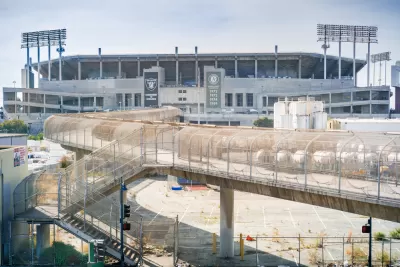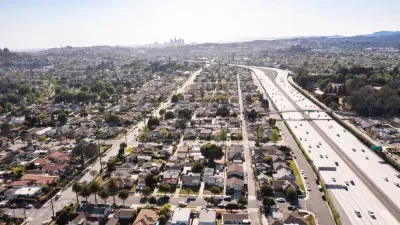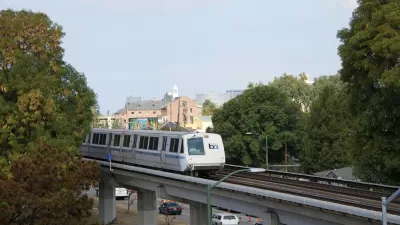One legislator believes CEQA "is a key barrier to California meeting its ambitious climate change goals.”

The idea behind a law proposed by a California assemblyman is to take majors obstacles out of the way of transportation projects that would reduce traffic congestion, and therefore reduce greenhouse gas emissions.
The issue is that the major obstacle in the way of these projects, according to the bill’s author, is the foundation of environmental protection in the state—the California Environmental Quality Act.
[Assemblyman Tim] Grayson says the law can grind to a halt transportation projects that are needed to reduce the amount of cars on the road. His legislation, Assembly Bill 1905, would make it easier for road or transit projects included in a state-approved regional growth plan to begin construction before any CEQA litigation is resolved.
A number of prominent environmental groups oppose the legislation, crediting "CEQA, which took effect in 1970, with preserving California's natural beauty, and argue it is complementary — not contrary — to the more recent climate change laws."
Environmental review in California is notoriously laborious, and this is not the first legislative effort to help projects move through CEQA more easily.
There have also been questions about how well CEQA serves its original purpose; one study found that "unions, business trade associations, rival local government agencies, and even the building industry all use CEQA to gain leverage over some local political process."
Opposition groups say the bill goes "too far."
“For instance, a judge might find that a transportation project's environmental review didn't account for all the effects the development could have on air quality, but under AB 1905 that judge couldn't stop the project because of it, said David Pettit, a senior attorney with the Natural Resources Defense Council. Without the threat of halting construction, agencies won't need to take seriously any subsequent demands to improve the air surrounding the project, he said.”

Alabama: Trump Terminates Settlements for Black Communities Harmed By Raw Sewage
Trump deemed the landmark civil rights agreement “illegal DEI and environmental justice policy.”

Planetizen Federal Action Tracker
A weekly monitor of how Trump’s orders and actions are impacting planners and planning in America.

How Atlanta Built 7,000 Housing Units in 3 Years
The city’s comprehensive, neighborhood-focused housing strategy focuses on identifying properties and land that can be repurposed for housing and encouraging development in underserved neighborhoods.

In Both Crashes and Crime, Public Transportation is Far Safer than Driving
Contrary to popular assumptions, public transportation has far lower crash and crime rates than automobile travel. For safer communities, improve and encourage transit travel.

Report: Zoning Reforms Should Complement Nashville’s Ambitious Transit Plan
Without reform, restrictive zoning codes will limit the impact of the city’s planned transit expansion and could exclude some of the residents who depend on transit the most.

Judge Orders Release of Frozen IRA, IIJA Funding
The decision is a victory for environmental groups who charged that freezing funds for critical infrastructure and disaster response programs caused “real and irreparable harm” to communities.
Urban Design for Planners 1: Software Tools
This six-course series explores essential urban design concepts using open source software and equips planners with the tools they need to participate fully in the urban design process.
Planning for Universal Design
Learn the tools for implementing Universal Design in planning regulations.
Jessamine County Fiscal Court
Caltrans
Institute for Housing and Urban Development Studies (IHS)
City of Grandview
Harvard GSD Executive Education
Toledo-Lucas County Plan Commissions
Salt Lake City
NYU Wagner Graduate School of Public Service





























